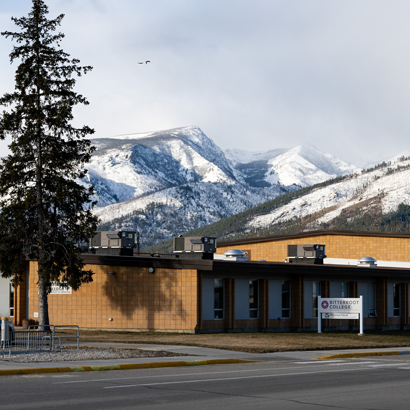Associate of Applied Science Degree Programs
Associate of Applied Science (A.A.S.) Degree Programs
-

Medical Information Technology
The Medical Information Technology program will prepare students to work in the healthcare industry as medical coders and biller, patient advocates, insurance specialists, and more. These jobs can be from home, in a small office, or a larger organization or hospital.
Two degree paths are offered: an A.A.S. degree in Medical Information Technology with a specialty in Health Information Coding, and an A.A.S. degree with a specialty in Medical Administration Assisting. Both provide graduates with valuable skills and hirable qualities.
-

Medical Laboratory Technology
The MLT program prepares graduates for entry-level positions in a clinical laboratory environment such as in hospitals, physicians’ offices, commercial laboratories, biotechnology, research laboratories, pharmaceutical companies, technical services and sales, or veterinary laboratories. At entry level, the medical laboratory technician will possess the entry level competencies necessary to perform routine testing in the areas of Clinical Chemistry, Hematology/Hemostasis, Immunology, Immunohematology/Transfusion medicine, Microbiology, Urine and Body Fluid Analysis, and Laboratory Operations.
-

Paramedicine
The Paramedicine AAS program prepares students to provide emergency medical care to victims of illness, accident or injury, assessing patients and performing critical medical interventions. As members of the allied healthcare team, Paramedics work as part of a comprehensive EMS response, applying their advanced knowledge of human anatomy and physiology to provide advanced life support care to patients.
-

Surgery Technician
This program is designed to prepare the student for employment as a surgical technologist, who are an integral part of the team of medical practitioners providing surgical care to patients. Surgical technologists work under the supervision of a surgeon to facilitate the safe and effective conduct of invasive surgical procedures, ensuring that the operating room environment is safe, that equipment functions properly, and that the operative procedure is conducted under conditions that maximize patient safety.
Surgical technologists possess expertise in the theory and application of sterile and aseptic technique and combine the knowledge of human anatomy, surgical procedures, and implementation of instrumentation and technologies to facilitate a physician’s performance of invasive therapeutic and diagnostic procedures.
